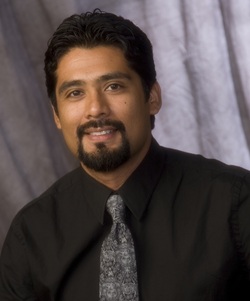We Can Help Young People Leave the Street Life for the University, Says Dr. Victor Rios
May 7, 2014
Posted in Education/Schools/Youth, Equal Rights/Equity, Police-Public Safety
By Ken A. Epstein
Award winning sociologist Dr. Victor Rios came home to Oakland this past weekend to speak about the importance of not giving up on our youth. His message was about the transformative power of treating young people with respect.
“We have been stripped of our dignity from an early age – We invest too much on punishment and not enough on giving young people a sense of purpose and rewards” for doing something positive with their lives, said Rios, who at 15 had dropped out of school and was hanging out on International Boulevard in East Oakland.
But because there were a few special teachers and others who did not give up on him, he said, he went on to earn a Ph.D. from UC Berkeley. He is now married with three children and is an associate professor at UC Santa Barbara, where he has already published two books.

Dr. Rios was the guest speaker at an event last Saturday afternoon at Castlemont High School in East Oakland, sponsored by People United for a Better Life in Oakland (PUEBLO).
A man with a mission, he argues that those who value the lives of Latino, African American and other low income teenagers are fighting an uphill battle against educational and criminal justice systems stacked against them.
But, he says, teachers and other youth workers have to keep working for the long haul. And while they work for systemic change, they need to be helping change lives, “one heart at a time.”
“We are part of the larger system,” he said, which in the last 30 years has changed its disciplinary polices to Zero Tolerance.
Nowadays, discipline means more “more policing tactics and surveillance” in schools and youth development institutions, he said. There are police and police tactics in the schools, he said.
“But police officers are not trained to help people out. They’re trained to apprehend, which is true in in Oakland and across the country.”
Dr. Rios asked his audience of teachers, teenagers and concerned adults to consider: “What does it mean to grow up in a time where we invest more on prisons than we do on education?”
“We’re not funding (youth); we’re not educating them; we’re not resourcing them. But we try to pin the blame on them all the time,” he said.
His research interests include educational equity, restorative justice, resilience, motivation, and youth culture. He is the author of “Punished: Policing the Lives of Black and Latino Boys” and “Street Life: Poverty, Gangs, and a Ph.D.”
He was the winner of the 2012 Distinguished Book Award, American Sociological Association, Section on Latina/o Sociology and finalist for the 2012 C. Wright Mills Book Award.
Dr. Rios also speaks to middle, high school and college students, about overcoming adversity, leadership, and the power of a higher education.
“Where did I get (this) curriculum? He asked. “Did Berkeley give me that curriculum? Did UC Santa Barbara give me that curriculum?”
“The streets of Oakland gave me that curriculum. You (people committed to helping youth) gave me that curriculum,” he said.
Dr. Rios says he sees signs of positive change. “I’ve seen progress in Oakland though there’s still people out there left behind,” he said “There are organizations and people who are already doing great work.”
But he warned that “restorative justice” and “resilience” have been coopted to some extent, that there are those who talk about these things who are not committed to doing grassroots work with young people.
“There are people making a lot of money out of it,” he said, emphasizing that his approach is not about having pity for young people.
“It might not be your fault that you’re falling on your face,” he tells teenagers. “But it’s your responsibility to get yourself back up.”